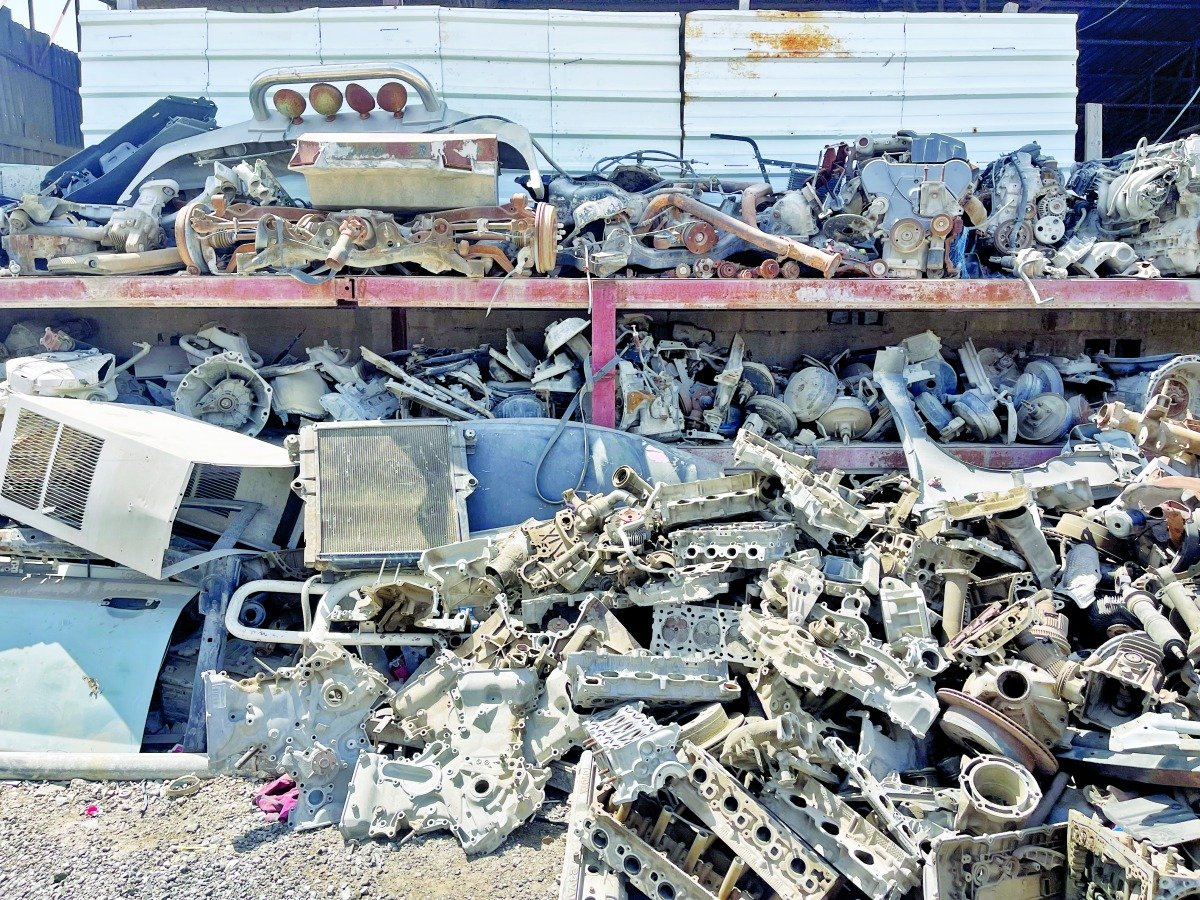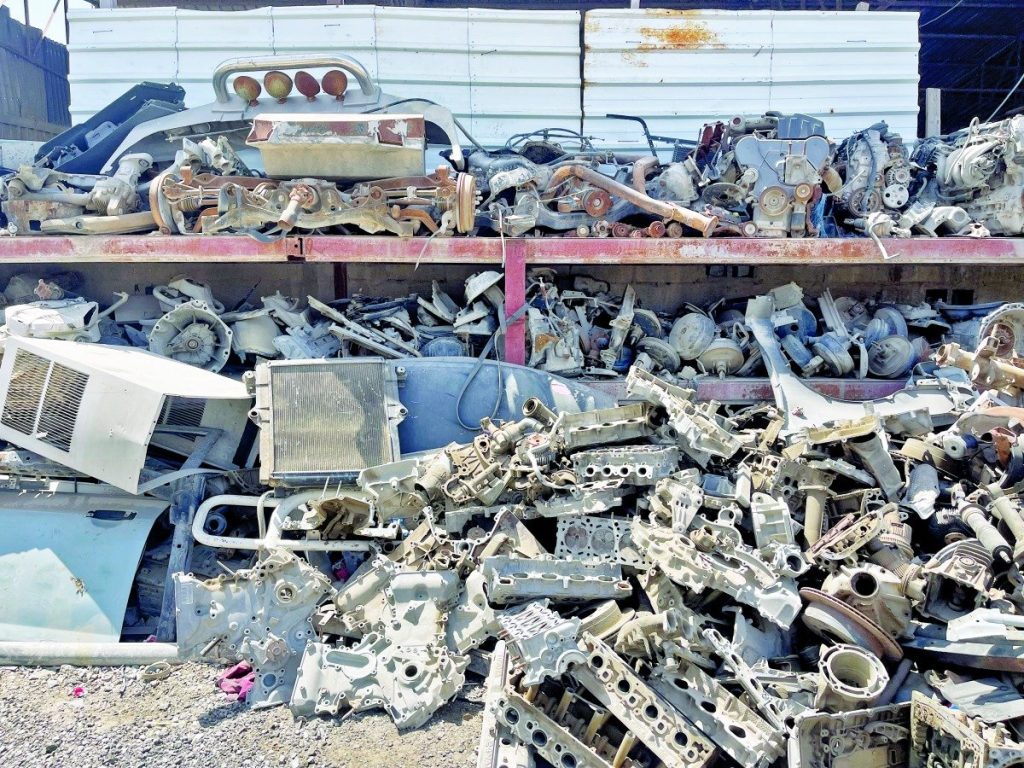– Technicians deliberately cause faults to push customers to buy
– Calls for clear pricing and warranty on used parts
– Necessity to oblige workshops to provide invoices and documented technical reports
Citizens have called on the concerned authorities, represented by the Consumer Protection Department at the Ministry of Commerce and Industry, to tighten control over car garages in the industrial area, which sell used spare parts at high prices close to original parts prices. They emphasized the importance of protecting consumers from practices described as “commercial manipulation” that burden consumers amid the absence of effective oversight. They pointed out that these garages often sell used spare parts without warranty or with a warranty not exceeding one week, forcing Qatari consumers to pay large amounts for parts whose performance is not guaranteed for a long period.
They added that many citizens cannot afford to buy new cars or original spare parts at high prices compared to neighboring countries, which leads them to resort to these workshops despite the problems associated with their dealings. They noted that some technicians deliberately mislead customers by pretending there are non-existent faults in the car to push them to buy parts from the workshop itself at prices set by the technicians without a clear reference. They described these practices as a form of “indirect monopoly,” where the consumer is forced to accept high prices or face additional faults. They explained that many workshops prevent customers from bringing spare parts themselves and insist on buying from them under the pretext that the warranty applies only to parts purchased from the workshop, a warranty that does not exceed a few days.
They confirmed that this policy raises doubts about the intentions of some workshop operators, especially in the absence of clear regulation of used parts prices or inspection and installation mechanisms.
In this regard, Khalid Fakhro held the concerned authorities, foremost the Ministry of Commerce and Industry, responsible for the weak oversight and lack of organized procedures for selling used spare parts, demanding clear pricing for used spare parts sales, obliging workshops to provide documented technical reports before starting any work, issuing official invoices, and granting a warranty for a specified period at least for some consumable parts.
He proposed creating an application or electronic platform that provides consumers with a list of fair prices for parts and services and allows them to rate workshops and report violations to enhance transparency and information exchange among consumers.
He confirmed that what happens in some industrial garages has exceeded acceptable professional limits and has become a danger to vehicle safety and public trust in the sector. He also confirmed that some technicians exploit the ordinary consumer’s ignorance of car details to fabricate non-existent faults and impose parts that may have been used for many years at prices up to double their actual value.
For his part, Mohammed Diab said that fraud in selling spare parts is forbidden as it involves misleading the buyer and exploiting his need, and our Islamic religion forbids such practices. He called for intervention by the concerned authorities to put an end to these violations faced by most visitors to the industrial area garages, to reorganize the relationship between service providers and consumers, ensuring fairness in prices, credibility in diagnosis, and quality in maintenance. Until that happens, the consumer remains forced to rely on personal experience or advice from trusted people to avoid falling into the trap of repeated manipulation and fraud.
He stressed the necessity of tightening control over car garages in the industrial area as is the case with car agencies, some of which have been closed recently, hoping that oversight would include car garages and ensure their compliance with laws guaranteeing consumer rights, according to the conditions set by consumer protection, foremost of which are the validity of parts, granting sufficient warranty periods, and adherence to prices. Currently, the situation involves bringing spare parts from neighboring countries at cheap prices and selling them at exorbitant prices to the powerless Qatari consumer who has no choice but to submit and pay due to his urgent need to repair his car before the new school year begins.
Jaber Al-Marri said that he and many Qatari consumers have repeatedly been subjected to fraud and scams by garages in the industrial area, which exploit consumer needs by manipulating prices and selling very old spare parts as new at exaggerated prices.
He stressed the need to intensify oversight on industrial garages similar to car agencies, which consumer protection has successfully obliged to provide everything necessary for the consumer and urgent after-sales services, noting that continuous oversight obliges these garages to provide appropriate services and install suitable spare parts at reasonable prices with sufficient warranty periods that satisfy the consumer, unlike the current situation.
He confirmed that the problem is no longer related to one or two garages but has become a recurring phenomenon within the industrial area, where prices vary significantly between workshops, while the same methods are repeated to convince the consumer of imaginary faults and pressure him with phrases like “the part may cause great damage if not replaced now,” a phrase familiar to many car owners, especially those without technical experience.













Recommended for you
Exhibition City Completes About 80% of Preparations for the Damascus International Fair Launch
Talib Al-Rifai Chronicles Kuwaiti Art Heritage in "Doukhi.. Tasaseem Al-Saba"
Unified Admission Applications Start Tuesday with 640 Students to be Accepted in Medicine
Egypt Post: We Have Over 10 Million Customers in Savings Accounts and Offer Daily, Monthly, and Annual Returns
His Highness Sheikh Isa bin Salman bin Hamad Al Khalifa Receives the United States Ambassador to the Kingdom of Bahrain
Al-Jaghbeer: The Industrial Sector Leads Economic Growth